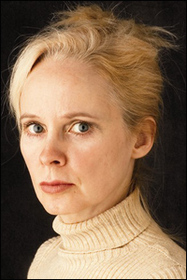There have been scads of articles about the evils of high-stakes gambling by book publishers–the doling out of huge advances to one or two would-be-blockbusters while investing little in the rest of the list. The logic behind this impulse isn’t hard to understand: when a Big Book hits the jackpot, the publisher does, too–and in theory, the rest of a publisher’s list and personnel would reap the benefits. But even the glorious success of of one book can set unrealistic expectation for future titles–and rather than supplementing resources for less popular books, a Hit might wind up making those books look less appealing to sign, publish, or promote. And when a would-be-Hit doesn’t, er, hit, it’s a big problem for the house’s future, the editor’s job, and the author’s career. Yet the cycle continues:
Six years after the publication of her blockbuster best-selling novel, “The Time Traveler’s Wife,” Audrey Niffenegger has sold a new manuscript for close to $5 million, according to people with knowledge of the negotiations. It is an especially significant sum at a time of retrenchment and economic uncertainty in the publishing world. (Motoko Rich, for the NY Times)
OK. I loved The Time Traveler’s Wife and am already getting excited about the new book, Her Fearful Symmetry…but why, in this current climate, is the phrase “close to $5 million advance” even being uttered? Why do publishers continue to put single authors/books under that much pressure (banking so much on the success of one title — the next Harry Potter! another Eat, Pray, Love!) when they could spread some of that love and investment around to dozens of promising (if not yet famous) authors/books — a move that would ultimately help authors, houses, and the market alike?
Of course all publishers need cash-cow titles to help finance the rest of the list, but in many cases, the ratio between what is spent on the former and what is allocated for “mid-list” book budgets seems ridiculous — so most titles, regardless of their potential, languish on the list behind or somewhat below that horrible prefix mid-.

It’s also a little sad to read that Niffenegger is leaving (and is herself sad to leave) behind MacAdam Cage, the small but top-notch indie house that published The Time Traveler’s Wife and helped make that book a hit. Her Fearful Symmetry will be published by Scribner, a larger house who can pay out a bigger advance and probably offer a more aggressive, wide-reaching publicity effort. It was probably a smart move for her (it definitely was for her agent), and Scribner does seem like a good match for the project…but did they really need to shell out such a huge advance to lure her away?
Of course I realize advances are driven this sky-high by book auctions; if Scribner had been the only bidder, the $5 millionish number would never have been on the table. So I’m not pointing my finger at one publisher, I swear. There needs to be a larger systemic change…pure, unbridled supply-demand capitalism ain’t cutting it.
There are many, many much more crazy book deals out there — take, for instance, Joe the Plumber’s — and Niffenegger is a top-rate literary author whose success thrills me. Yet every time an offer like this is made and accepted, it sets a bad precedent. Advances are just that — advances against sales — and the author (especially one as beloved as Niffenegger) will see the money eventually. So invest, dear publishers, in a variety of possible futures — in spending a little more to sign, support, and promote a greater number of high-quality projects, and spending a little less all in one place. You’ve been doing some wishful time-traveling of your own back to the blessed 90s, but please, for books’ sake, return to the very dire present and help plan for a sustainable future.





